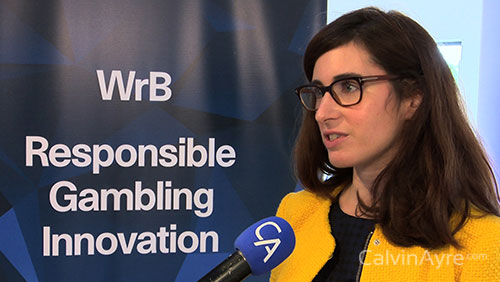In this interview with CalvinAyre.com’s Becky Liggero, Hannah Harrison of SABMiller explains how gambling firms can use sustainability messages in promoting the industry.
Negative propaganda is not new in the gambling industry. In fact, anti-gambling advocates have been relentless in their campaign to dissuade people from gambling by publishing its alleged ill-effects to players.
What these propagandists fail to mention is that gambling brings jobs and food to the table of thousands of families. The gambling industry has always been one of every government’s partner for change. Through the taxes that each gambling firms pay, every kid gets free proper education.
In Australia and UK, the government uses funds collected in lottery to send their athletes to training camps so that they will be able to compete and win in tournaments.
These are the messages that each gambling companies should be telling to the public but fail to do so. People knows about the gambling business but they do not know what the gambling business can do for them.
Hannah Harrison of SABMiller pointed out that the gambling industry may learn a lot from the beer company in terms of using sustainability messages.
“I really think it is interesting when you look at beer brands. You may not think beer as being a particularly ethical product, but actually you can use sustainability messages to bring a beer’s purpose to life,” Harrison told CalvinAyre.com. “Purpose is something that is here to stay, in particular, care about. They want to know that they are buying a product that resonates their own personal values and you can use that to differentiate from your comptetitors.”
SABMiller, according to Harrison, was able to help Uganda harness its local crop called Sorghum and turn it into viable beer product that helps promote sustainable development in the country and bring down the cost of beer.
In return, Harrison pointed out that the company was able to secure excise break from the government for them to be able to sell the beer at a cheaper price.
“We were competing not with the existing beer but with the elicit alcohol market, attracting people out of the dangerous and unregulated, illegal alcohol market,” she said. “So, we are making beers safer for consumer, creating new revenue for our business and creating money for the government as well, which have increased their tax revenue for over 50 percent since 2002.”
By using sustainability messages, Harrison said that gambling companies will also be able to untap new innovative products and services that will suprise and delight their consumers.
She added that gambling firms should “be bold” and that they should “recognize that this is a long process.”
“Beer is an incredibly a local product, typically brewed and sold in the same community. So, for us, growth is dependent upon the growth of the community we are part of, particularly in the emerging market, where 70 percent of our revenue comes from,” Harrison said.
“So, for us, if we can’t find a way of growing inclusively, sharing that value, and going back to the community, we are not going to have a long term future.”






